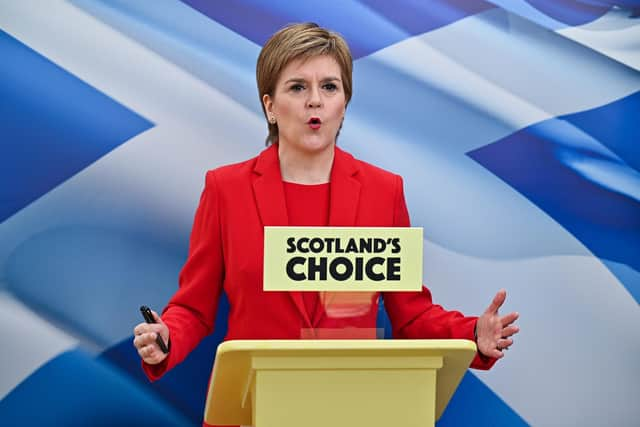Leader: Questions remain on sterlingisation plans
The grip she and her party have on Scottish politics shows little sign of weakening, despite a record in areas such as transport, education and health that could be described as “patchy” at best.
At the local elections earlier this month, the SNP combined with their fellow Nationalists in the Scottish Green Party secured the same vote share as the “Yes” side in 2014’s independence referendum.
Advertisement
Hide AdAdvertisement
Hide AdBuoyed by this support, and despite widespread scepticism, Ms Sturgeon continues to maintain that a second independence referendum will take place next year. With this in mind, she promoted her latest campaign for independence with a newspaper article yesterday in which she pledged to “shortly begin publishing an updated prospectus” on the case for leaving the UK.


One of the “challenges” Ms Sturgeon’s prospectus must not shy away from is the vexed issue of currency.Former SNP MSP Andrew Wilson has insisted on the continued relevance of the long-awaited 2018 report by the party’s Growth Commission that proposed “sterlingisation” – retaining the pound despite no formal currency union with the UK. The report was unpopular with many independence supporters, perhaps in part because it acknowledged a likely period of austerity lasting up to ten years after secession, and a new Scottish currency has recently been mooted instead of “sterlingisation”.
However the SNP’s Westminster leader Ian Blackford yesterday suggested an independent Scotland could retain the pound for many years in order to “provide stability”.
If “sterlingisation” is to form part of Ms Sturgeon’s new prospectus, there must be answers to key questions that have never gone away on the risk such a move would entail.
How would the newly-fledged state with no central bank borrow to finance a sizeable deficit? How could capital flight be averted?
And how would retaining the pound sit with the SNP’s stated ambition of joining the European Union as soon and as seamlessly as possible after a vote for independence?